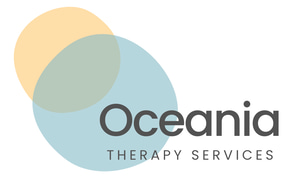Clinical Support



1:1 Tailored program to support your abilities
Occupational therapy is a holistic and client-centered approach that we aim to enhance your ability to participate in daily life, improve overall well-being, and achieve your personal goals. The primary goal of occupational therapy is to promote health and well-being by enabling you to participate in the activities that are important to you.
Following an assessment, our occupational therapists develop individualized treatment plans and interventions. These may include exercises, adaptive techniques, environmental modifications, and other strategies to help you improve your quality of life. However, this may also involve engaging Assistive Technology or equipment to improve one’s independence and quality of life.


Paediatric Services


Functional Capacity Assessments (FCA)
Functional Capacity Assessments are conducted to determine a person's ability to perform the essential physical demands of a specific job or to evaluate their overall functional capacity, especially if they have a disability or have experienced an injury. This will involve the process of:
Conducting Standardised Assessments to understand the nature of the condition and their impacts on daily life.
Clinical observational visits of the individual in their home in specific tasks such as cooking, showering, dressing, domestic chores
Interview and gathering of information with carers
Report Writing
We aim to support the client to help NDIS understand their needs of support throughout the day, to obtain the necessary therapeutic supports and services to meet their goals.
Occupational therapists work with children to support their development and help them overcome challenges related to sensory processing, fine and gross motor skills, and cognitive abilities. We provide assessment and intervention planning within all environments including:
Home
School
Community


Assistive Technology
Our Occupational Therapists can assist with prescribing and assessing the appropriate equipment and devices to support daily activities and life skills such as (including, but not limited to):
Wheelchair Prescription
Cognitive Aids
Activities of Daily Living equipment such as modified kettles, adaptive utensils and tools
Adaptive Computer and Software
Vehicle Modification
The use and recommendation of these assistive Technology depends on the individual’s specific needs and nature of their disability.


Sensory Assessments
Occupational therapists use sensory assessments to better understand how a person responds to sensory stimuli from the environment and how these responses may affect their daily functioning and overall well-being. Sensory assessments can be particularly important for individuals, especially children, who have sensory processing disorders or sensory sensitivities.
Alternative Day Program






Clinical Support
Disability Consultation
Our Services
Get in touch




